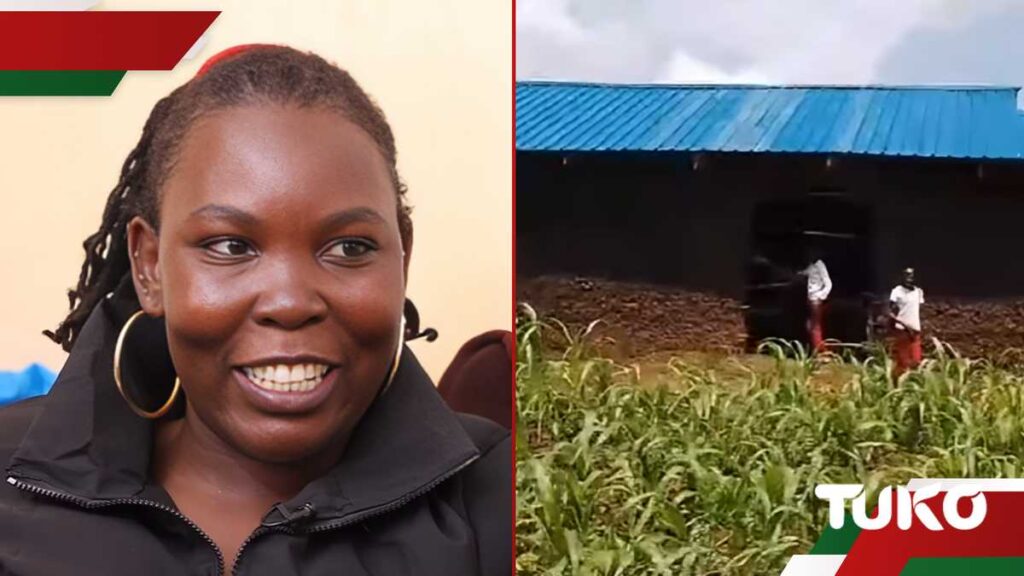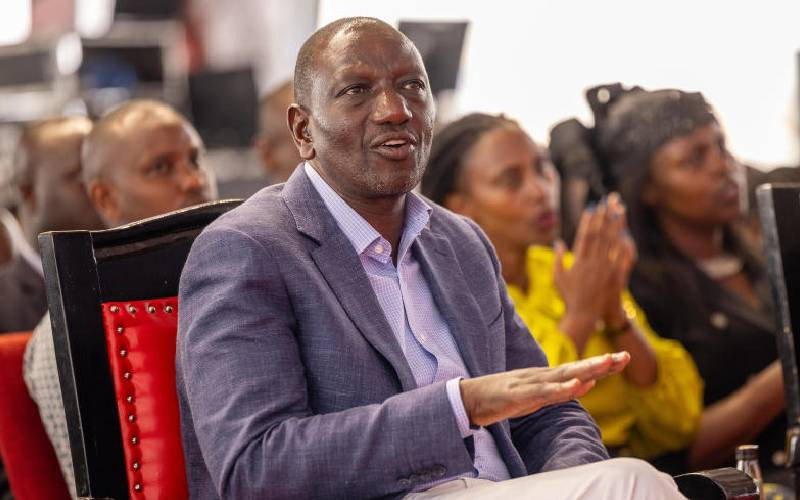Another season of political parties is at hand, and political mules and donkeys are now positioning themselves in readiness to race against the thoroughbred horses in the 2027 presidential race.
And in the unfolding scenario, the ground has been shifting, and so have the alliances at dizzying speed as political parties move in and out of alliances.
Consequently, the alliances of 2022 are now forgotten, political sins forgotten or forgiven as hitherto foes embrace in new unions, birthing new coalitions and promises of a bright future in two years.
The reorganising and re-strategising have created new outfits.
As of last month, the Office of Registrar of Political Parties said it had about 40 applications for new political parties. But since the 2022 General Election, only two parties had been fully registered owing to the tough requirements put in place.
Registrar of Political Parties Ann Nderitu says there has been the rush to register, rebrand and change of officials as well as the manner in which parties want to be known out there in preparation of 2027 General Election.
In an interview with Spice FM recently, Ms Nderitu said that people who have not been involved in political parties before are also actively seeking to get into leadership, hence a rush in these aspects.
“The first thing to appreciate is that the Constitution describes Kenya as a multi-party democracy. That sets the space that any Kenyan can register a political party provided the rules, regulations and procedures are followed to the end,” Nderitu said.
To this end, she said Kenyans cannot be stopped from exercising their political rights by registering a political party but her office has to set procedures that regulate that process and make sure that it is in full compliance to the law.
One of the issues which has previously been a challenge, she said, was on party membership. Today, one of the requirements before being declared a political party is having 24,000 members, at least 1,000 in 24 counties.
Looking at the political landscape, Nderitu says people are increasingly interested to join, and in particular, becoming party officials. Every Friday, gazette notices show the parties rebranding and changing officials, she says.
This has necessitated putting in place stringent procedures, including checking whether there is breach on data, a situation that has made the process slower compared to the last season.
“Before, Kenyans used to complain over registration, being in some parties without their knowledge. So, the first thing was to set up systems that allows Kenyans to give consent during registration. We prefer self-registration, which means you are putting your data and must give written consent if a political party has to register you,” Nderitu said.
As this happens, the two leading coalitions, Kenya Kwanza and Azimio la Umoja, have found themselves at the centre of changes, with some of their allies starting to delink themselves, claiming that their union is no longer tenable.
Stay informed. Subscribe to our newsletter
The latest seeking to ditch their coalition partners are Farmers Party and Democratic Party of Kenya (DP).
Similarly, new parties are being registered while others have maintained a hardline stance that they are in ruling coalitions to stay.
It has also been a long wait for former Deputy President Rigathi Gachagua who had promised to unveil a party, optimistic that he would get a following from those who feel disenfranchised in others, particularly the United Democratic Alliance (UDA).
In February, Gachagua postponed again unveiling of a new political party, which he insists will unseat President William Ruto in the 2027 general election, to May.
Gachagua, who has consistently held consultations in his Wamunyoro home in Nyeri since he was impeached, is optimistic that people in the region are done with UDA, noting that they had joined it believing in its vision but Ruto took full control, both as the driver and the sole holder of the logbook.
“Our vehicle is ready. It is brand new and waiting in the showroom. However, I won’t reveal its number plate or colour just yet because our adversaries might attempt to sabotage its launch. But come May 2025, we will unveil it and open doors for all Kenyans to join,” he said.
At the same time, Farmers Party says it intends to make a major decision to quit Kenya Kwanza as its continued stay at the coalition is no longer tenable since their ideologies no longer match.
The party patron Irungu Nyakera, who spoke after he was sacked as the Kenya International Convention Centre (KICC) chairman, said it was unfortunate that any leader who supports the government cannot critic the administration because he will be deemed as anti-government.
“Let me state categorically that any leader who supports government in Mt Kenya can’t critic this administration because he will be deemed as anti-government. This administration does not tolerate criticism, which is not a good sign for promoting democracy,” Nyakera said.
He said the Farmers Party that he leads entered into a memorandum of understanding with the Kenya Kwanza coalition to promote democracy, health and agriculture.
He termed it unfortunate that the administration has breached this shared vision, which makes it untenable for his party to continue being in that coalition and the relevant organs are working on the exit process.
“Despite being ousted, I will continue speaking about the issues that Kenyans feel should be addressed. It is unfortunate that, instead of some government leaders proposing punitive measures to fight corruption, they are encouraging efforts to entrench graft in our ways of life. I will continue speaking about such vices,” he said.
Similarly, a few weeks before he was sacked, former Public Service Cabinet Secretary Justin Muturi announced that he is severing links with the ruling coalition.
Muturi wrote to the Kenyan Kwanza secretariat issuing a 30-day notice for DP to leave the coalition in a letter signed by the party Secretary General Jacob Haji and Chairman Esau Kioni.
“Kindly take notice that our stay in Kenya Kwanza coalition is no longer tenable due to the prevailing political developments. DP, vide this letter, hereby gives 30-day notice to exit the coalition as stipulated in the termination clause (8) in the coalition agreement. This notice is effective from the date of this letter,” the party wrote.
Besides exiting Azimio coalition, Narc Kenya fully rebranded to People’s Liberation Party (PLP), with its leader, Martha Karua, saying that they will plan, re-strategise and eventually develop a clear formula to pick a single candidate to face Ruto in the next elections, as they renewed their resolve to keep their purpose of unity stronger.
Karua said PLP is not only rebranding to have a new look but also renewing commitment to fight for, unite and liberate Kenyans, in addition to standing with other leaders to accomplish this task, which cannot be accomplished by one person or political party.
“We are now looking at a coalition that is going to unite and liberate this country. You may wonder how we are going to do this. I have expressed my wish to run for presidency, so has Kalonzo (Wiper party leader) and several others have that ambition, and everybody is worthy, every dream is valid but we have to put Kenya first. It is (more) important that any of us,” Karua said.
Similarly, Democratic Action Party of Kenya (DAP-K) leader Eugene Wamalwa withdrew from Azimio in November, citing perceived betrayal by its affiliate members.
“As DAP, we can no longer maintain a relationship with those who are not like-minded. Those aiding Ruto in introducing more taxes to Kenyans are not aligned with our values,” he said.
Last month, UDA and Orange Democratic Movement (ODM) signed an agreement they insist seeks to help ease prevailing tensions in the country, alleviate the suffering of Kenyans and move the country forward by addressing the critical social, political, and economic issues people are grappling with.
In January, President William Ruto’s UDA and Amani National Congress (ANC) announced a merger to form the United Democratic Alliance Party.
In February, Nderitu said she turned down efforts to register the ‘Gen Z’ party because it failed to attain the threshold of inclusivity as provided for in Article 91 of the Political Parties Act on the basic requirement of political parties.
On Thursday, Umoja Summit Party Secretary General Barrack Muluka announced rebranding to Democratic National Alliance (DNA) and vowed to engage the youth in elective positions.
Muluka said the party has shifted its focus to onboard the young people in the party and address the plight of the electorates.
The party joins the growing list of other political outfits rebranding recently, geared towards wooing the public to buy their ideologies in the wake of the Generation Z evolution.

















